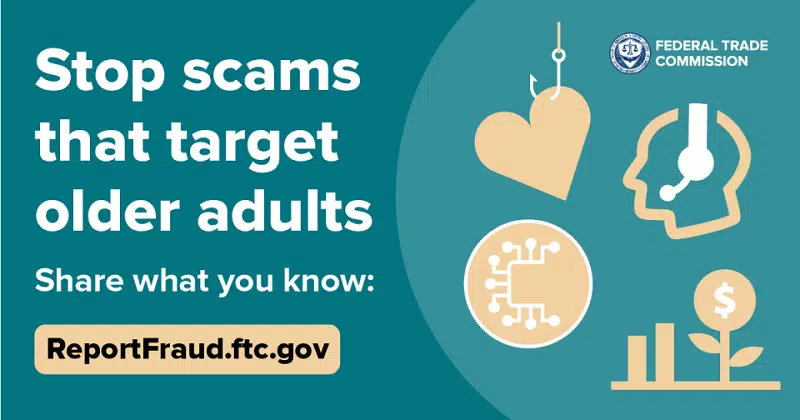Protecting older adults is one of the FTC’s top priorities, and a new report to Congress tells how the agency tackled fraud, scams, and other issues affecting older adults over the last year. It’s been a busy year at the FTC, so what are some of the highlights?
One of the cases with the biggest impact on older adults was the FTC’s case against Publishers Clearing House (PCH), charging that the company used “dark patterns” to mislead people about how to enter sweepstakes drawings, making them think they had to buy something to win (or increase their chances of winning). A court required PCH to turn over $18.5 million to the FTC to use for customer refunds.
While younger people were still more likely to report losing money to fraud than older people, reports to the FTC showed that, during 2022, older adults:
- reported losing more than $1.6 billion to fraud, compared to about $1 billion the year before.
- reported losing big to investment scams: $404 million in reported losses, with reports often describing fake cryptocurrency investment opportunities that targeted people on social media.
- reported losing more to business impersonation scams (especially scammers pretending to be Amazon) and romance scams than the previous year.
- were more than six times more likely than younger adults to report losing money to a tech support scam.
To help older adults spot, avoid, and report scams, the FTC keeps collaborating with community groups, law enforcement, financial institutions, aging and consumer professionals, and hundreds of others to share fraud prevention material. This year, partner organizations ordered 2.1 million pieces of information from the Pass It On campaign in English and Spanish. You’ll find campaign material in Spanish at ¡Pásalo!.
To learn more, check out this year’s report. And if you spot a fraud or scam, tell the FTC at ReportFraud.ftc.gov.









Comments